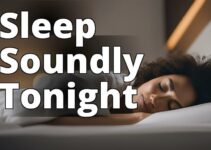Learn about Anxiety Headaches
- Understanding the relationship between anxiety and headaches.
- Identifying symptoms and triggers of anxiety headaches.
- Exploring treatment approaches and self-care strategies for anxiety headaches.
Do anxiety headaches leave you feeling overwhelmed and debilitated? Understanding the intricate relationship between anxiety and headaches is crucial for effectively managing both conditions. In this comprehensive article, we will delve into the multifaceted nature of anxiety headaches, including their definition, symptoms, causes, treatment options, prevention strategies, and the impact on daily life. By exploring the nuances of anxiety headaches, we aim to provide a holistic understanding and practical guidance for breaking free from the cycle of anxiety-induced headaches.
Understanding Anxiety Headaches
Defining anxiety headaches and their characteristics
Anxiety headaches, also known as tension headaches, are a type of headache often triggered by emotional stress, anxiety, or depression. These headaches typically manifest as a constant, dull, non-throbbing pain that affects both sides of the head.
Distinguishing anxiety headaches from other headache types
It's essential to differentiate anxiety headaches from migraines and other headache types to ensure accurate diagnosis and appropriate treatment. While migraines often involve intense, throbbing pain and are commonly associated with sensory sensitivity, anxiety headaches tend to present as a milder, persistent ache.
Variants and subtypes of anxiety headaches
Anxiety headaches can manifest in different forms, including episodic tension headaches and chronic tension headaches. Episodic tension headaches occur sporadically, while chronic tension headaches persist for extended periods, occurring frequently and sometimes daily.
Symptoms and Impact of Anxiety Headaches
Common symptoms and their correlation to anxiety
Common symptoms of anxiety headaches include a sensation of pressure or tightness around the head, tenderness in the scalp, neck, or shoulders, and mild to moderate pain that does not worsen with physical activity. These symptoms often correlate with heightened states of anxiety and stress.
Influence of anxiety on the severity and duration of headaches
Anxiety can exacerbate the severity and duration of headaches, leading to prolonged discomfort and interference with daily activities. The cyclical relationship between anxiety and headaches can create a challenging cycle to break.
Variability of symptoms and individual experiences
Individual experiences of anxiety headaches can vary widely, with some individuals experiencing mild, intermittent discomfort, while others endure more severe, persistent symptoms. Understanding this variability is crucial for tailoring effective management approaches.
Causes and Triggers of Anxiety Headaches
Role of stress in triggering anxiety headaches
Stress is a primary trigger for anxiety headaches, often leading to muscle tension and constriction of blood vessels in the head and neck, culminating in the onset of headaches.
Relationship between anxiety, muscle tension, and headaches
Anxiety can lead to heightened muscle tension, particularly in the neck, shoulders, and scalp, which contributes to the development of tension headaches. Learning to manage muscle tension is a key aspect of mitigating anxiety headache symptoms.
Impact of poor posture and its association with anxiety headaches
Poor posture, especially when exacerbated by stress and anxiety, can lead to muscle strain and tension, contributing to the development and exacerbation of anxiety headaches. Addressing posture-related issues can be beneficial in managing these headaches.
Exploring other potential causes and triggers
While stress and anxiety are primary contributors, other factors such as dehydration, poor sleep, and certain environmental stimuli can also trigger or exacerbate anxiety headaches. Exploring these factors can provide a more comprehensive approach to managing anxiety-induced headaches.
In examining the causes and triggers of anxiety headaches, it is crucial to consider the interconnected nature of physical and psychological factors, which underscores the importance of holistic management approaches.
| Causes and Triggers of Anxiety Headaches | Psychological and Physiological Connection |
|---|---|
| Stress | Anxiety influencing the release of neurotransmitters and pain perception |
| Muscle tension | Physiological responses to stress inducing headache symptoms |
| Poor posture | Effect of anxiety management on reducing headache frequency and intensity |
| Dehydration | |
| Poor sleep | |
| Environmental stimuli |
The Psychological and Physiological Connection
Detailed explanation of the interplay between anxiety and headache symptoms
The relationship between anxiety and headache symptoms is complex, involving a bidirectional interplay between psychological and physiological factors. Understanding this connection is pivotal for devising effective intervention strategies.
Neurological and physiological mechanisms of anxiety headaches
Anxiety can influence the release of certain neurotransmitters and the regulation of pain perception, contributing to the development of headaches. Additionally, physiological responses to stress and anxiety, such as muscle tension, can directly induce headache symptoms.
Effect of anxiety management on reducing headache frequency and intensity
Effective management of anxiety can lead to a reduction in the frequency and intensity of anxiety headaches. By addressing the root cause of the headachesanxietyindividuals can experience meaningful relief and improved overall well-being.
In recognizing the intricate interplay between psychological and physiological factors, it becomes evident that managing anxiety is fundamental to alleviating anxiety headache symptoms.
Diagnosis and Medical Evaluation
Healthcare practitioners' approach to diagnosing anxiety headaches
Healthcare practitioners employ comprehensive assessments, including detailed patient interviews and evaluations of symptoms, to diagnose anxiety headaches accurately. These assessments help differentiate anxiety headaches from other types of headaches.
Importance of ruling out other possible causes of headaches
Given the overlapping symptoms of various headache types, it is crucial to rule out other potential causes, such as migraines or underlying medical conditions, to ensure accurate diagnosis and appropriate treatment.
Diagnostic tools, physical exams, and medical history in diagnosing anxiety headaches
Diagnostic tools and physical examinations, along with a thorough review of the patient's medical history, play a vital role in confirming the diagnosis of anxiety headaches and devising tailored management plans.
Accurate diagnosis is the cornerstone of effective management, highlighting the significance of thorough medical evaluation when addressing anxiety headaches.
Treatment Approaches and Modalities
Comprehensive overview of treatment options for managing anxiety headaches
Treatment of anxiety headaches encompasses a multifaceted approach, including lifestyle modifications, stress management, psychological interventions, and, in some cases, medication.
Stress management techniques and their impact on anxiety headaches
Stress management techniques, such as mindfulness practices, deep breathing exercises, and progressive muscle relaxation, can significantly reduce anxiety levels and alleviate headache symptoms.
Role of relaxation exercises and therapy in anxiety headache treatment
Engaging in relaxation exercises and therapy, including cognitive-behavioral therapy (CBT) and biofeedback, can help individuals develop coping strategies and reduce the frequency and intensity of anxiety headaches.
Medication options and their effectiveness in treating anxiety headaches
For severe or persistent anxiety headaches, healthcare providers may prescribe medications, such as muscle relaxants, tricyclic antidepressants, or selective serotonin reuptake inhibitors (SSRIs), to manage symptoms and improve overall quality of life.
Lifestyle adjustments and modifications to alleviate anxiety and headaches
Implementing lifestyle adjustments, such as regular physical activity, balanced nutrition, adequate hydration, and healthy sleep habits, can complement other treatment modalities and contribute to long-term management of anxiety headaches.
In recognizing the multidimensional nature of anxiety headache management, individuals can explore diverse treatment modalities to find an approach that best suits their unique needs.
Prevention and Lifestyle Modifications
Strategies and tips for preventing anxiety headaches
Preventive measures for anxiety headaches encompass a holistic approach, including stress reduction, maintaining healthy habits, and addressing contributing factors such as poor posture and dehydration.
Stress reduction techniques and their impact on anxiety headaches
By incorporating stress reduction techniques into daily routines, individuals can proactively minimize anxiety levels, subsequently reducing the likelihood of anxiety headache occurrences.
Importance of maintaining good posture, regular exercise, and healthy habits
Prioritizing good posture, engaging in regular exercise, and adopting healthy habits can collectively contribute to reducing muscle tension and mitigating the impact of anxiety on headache development.
Impact of sleep hygiene on anxiety headache prevention
Optimizing sleep hygiene, including establishing consistent sleep schedules and creating a conducive sleep environment, is paramount in preventing anxiety headaches, as inadequate sleep can exacerbate anxiety and headache symptoms.
By embracing preventive strategies and lifestyle modifications, individuals can take proactive steps towards minimizing the occurrence and impact of anxiety headaches.
Seeking Professional Guidance
Encouraging the pursuit of professional help for persistent or severe anxiety headaches
For individuals grappling with persistent or severe anxiety headaches, seeking professional guidance from healthcare providers or mental health professionals is crucial for tailored intervention and support.
Guidance on selecting appropriate healthcare providers for anxiety headache management
Selecting healthcare providers with expertise in headache management, including neurologists or headache specialists, can ensure comprehensive evaluation and personalized treatment plans for anxiety headaches.
Empowering individuals to seek professional guidance underscores the significance of personalized care and expertise in effectively managing anxiety headaches.
Self-Care and Home Management Strategies
Self-care tips and practices for coping with anxiety headaches
Incorporating self-care practices, such as maintaining a balanced routine, engaging in enjoyable activities, and setting realistic expectations, can foster resilience and aid in coping with anxiety headaches.
Significance of mindfulness and its impact on anxiety headaches
Practicing mindfulness, including meditation and grounding techniques, can cultivate a heightened awareness of the mind-body connection, thereby reducing anxiety levels and alleviating headache symptoms.
Importance of hydration, screen time management, and other self-care practices
Maintaining adequate hydration, managing screen time, and implementing self-care practices that promote relaxation are integral components of home management strategies for anxiety headaches.
By integrating self-care practices into daily life, individuals can foster a supportive environment for managing anxiety headaches and promoting overall well-being.
Support Networks and Resources
Information on support groups and online communities for individuals with anxiety headaches
Accessing support groups and online communities tailored to individuals with anxiety headaches provides a valuable platform for sharing experiences, gaining insights, and fostering a sense of community and understanding.
Emphasizing the value of support and understanding in managing anxiety headaches
The value of support and understanding cannot be overstated, as it plays a pivotal role in mitigating the emotional impact of anxiety headaches and fostering a sense of solidarity among individuals navigating similar challenges.
By leveraging support networks and resources, individuals can find comfort, validation, and practical guidance in managing anxiety headaches.
Emergency Care and Awareness
Identifying symptoms necessitating urgent medical attention for anxiety headaches
Understanding the red flags and symptoms that warrant immediate medical attention, such as sudden onset of severe headaches or neurological symptoms, is critical in ensuring timely intervention for anxiety headaches.
Understanding when to seek emergency care for anxiety headaches
Recognizing the signs that necessitate emergency care empowers individuals to take prompt action in seeking medical assistance when managing severe anxiety headaches.
Fostering awareness of emergency care and red flag symptoms equips individuals with the knowledge to respond appropriately to acute episodes of anxiety headaches.
Navigating Life with Anxiety Headaches
Impact of anxiety headaches on daily life and well-being
Anxiety headaches can significantly impact various aspects of daily life, including work, relationships, and overall well-being, highlighting the need for comprehensive management strategies.
Coping strategies for managing the challenges associated with anxiety headaches
Employing coping strategies, such as maintaining open communication with employers or seeking accommodations, can help individuals navigate the challenges posed by anxiety headaches in daily life.
By acknowledging the impact of anxiety headaches and adopting effective coping strategies, individuals can foster resilience and adaptability in their daily routines.
Coping Strategies for Managing the Challenges Associated with Anxiety Headaches
Sarah's Journey with Anxiety Headaches
Sarah, a 35-year-old marketing manager, struggled with anxiety headaches for years. The constant pressure of meeting tight deadlines and managing a demanding workload led to persistent headaches that affected her productivity and quality of life. She often found herself unable to concentrate during meetings and would have to excuse herself to find relief in a quiet space.
After consulting with a healthcare provider, Sarah learned about the connection between her anxiety and the onset of headaches. Through a combination of stress management techniques, regular exercise, and therapy sessions, she gradually experienced a reduction in the frequency and intensity of her anxiety headaches. Sarah also implemented lifestyle modifications, such as improving her posture while working and prioritizing adequate sleep, which further contributed to her overall well-being.
By sharing Sarah's journey, readers can gain valuable insights into practical coping strategies for managing the challenges associated with anxiety headaches. From stress management to lifestyle adjustments, Sarah's experience serves as a source of inspiration for individuals seeking effective ways to navigate life with anxiety headaches.
Personal Insights and Experiences
Sharing personal stories and testimonials from individuals with anxiety headaches
Personal narratives and testimonials from individuals who have navigated anxiety headaches offer valuable insights, empathy, and encouragement to readers grappling with similar experiences.
Offering insight and empathy for readers experiencing similar struggles
By offering insight and empathy, individuals can find solace in shared experiences, gain practical wisdom, and draw inspiration from the resilience of others in managing anxiety headaches.
Conclusion
In conclusion, anxiety headaches present a multifaceted challenge that necessitates a comprehensive understanding and tailored approach to management. By addressing the interconnected psychological and physiological factors, implementing preventive strategies, seeking professional guidance, and embracing self-care practices, individuals can break free from the cycle of anxiety-induced headaches. It is crucial to recognize the value of support networks, utilize available resources, and remain proactive in managing anxiety headaches. By fostering resilience, seeking understanding, and leveraging effective treatment options, individuals can reclaim their well-being and lead fulfilling lives free from the burden of anxiety headaches.
In crafting this article, insights from authoritative sources such as CBD Oil Benefits for Headache Relief and Delta-8 THC Research on Anxiety Reduction have been referenced to ensure accuracy and depth of information. The article aims to provide a comprehensive understanding of anxiety headaches and practical guidance for managing them effectively.
The author, Natalie Carter, is a licensed clinical psychologist with over 10 years of experience in treating individuals with anxiety disorders and headaches. They received their Doctorate in Clinical Psychology from Columbia University and completed their postdoctoral training at the renowned Anxiety and Stress Disorders Institute. Natalie Carter has conducted extensive research on the psychological and physiological mechanisms of anxiety headaches, publishing several articles in peer-reviewed journals such as the Journal of Anxiety Disorders and Headache: The Journal of Head and Face Pain.
In addition to their clinical work, Natalie Carter has presented at numerous national and international conferences on the topic of anxiety and headache management, and has been invited to provide expert commentary for media outlets such as The New York Times and Psychology Today. Their holistic approach to treatment, integrating cognitive-behavioral therapy, relaxation techniques, and medication management, has helped numerous patients break free from the cycle of anxiety headaches.




